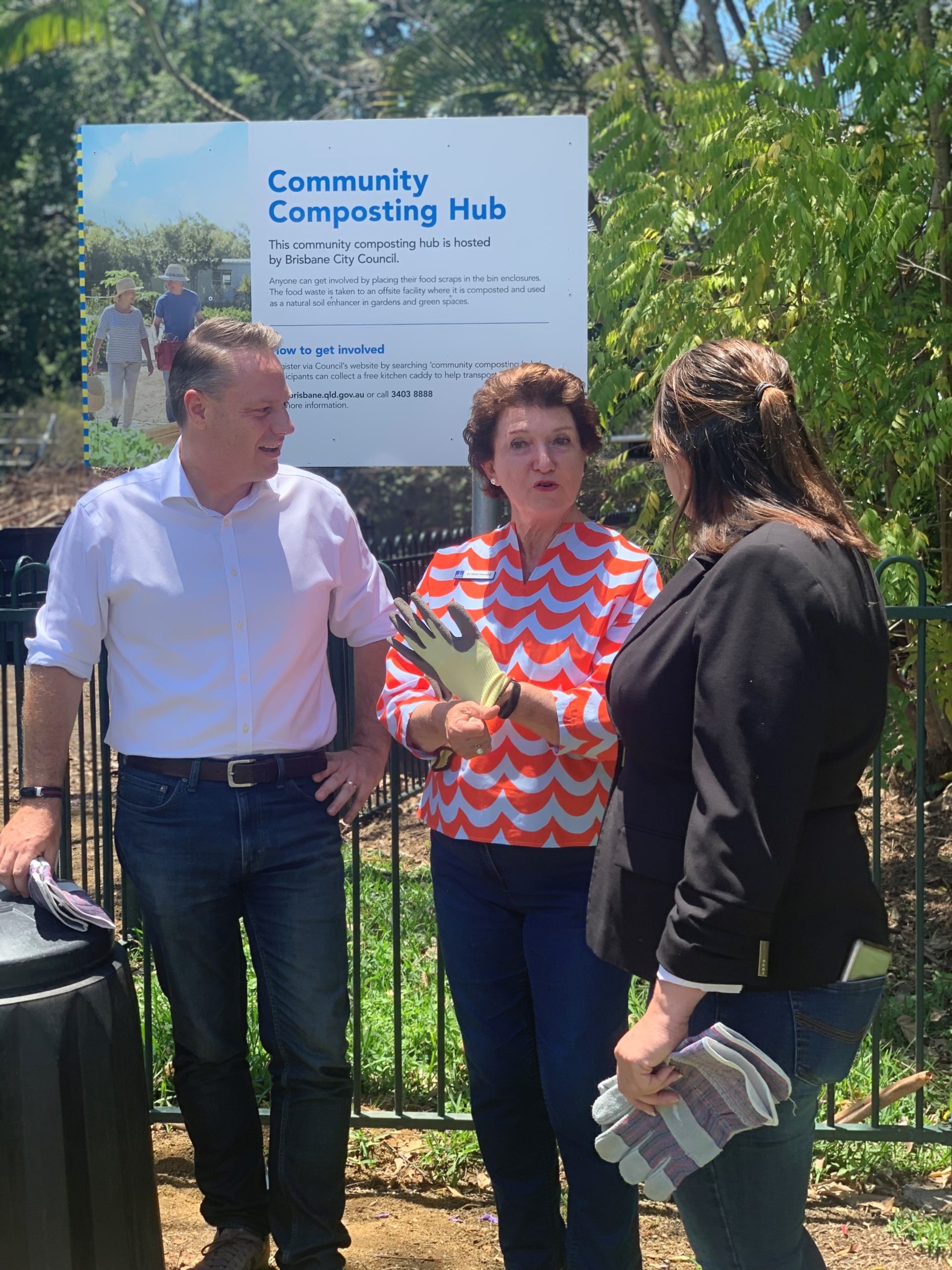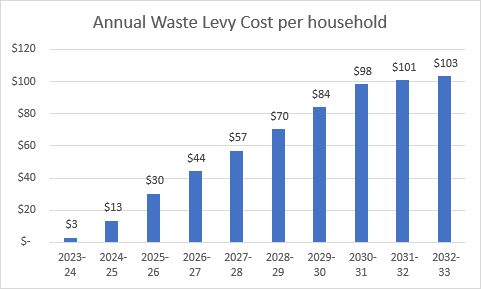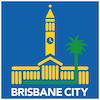
Avoid State Bin Tax
No time to waste helping Brisbane households avoid State’s “bin tax”: Lord Mayor
Lord Mayor Adrian Schrinner has released a detailed plan to help Brisbane residents avoid the rapidly escalating cost of the State Government’s “bin tax”.
The landmark new Towards Zero Waste strategy contains a suite of significant measures that will reduce the amount of residents’ waste that ends in landfill.
New and improved rebates, digitised waste vouchers, more community-based collection points and the staged rollout of a citywide household food waste recycling service are key Strategy initiatives.
The Strategy will also investigate options to establish Brisbane’s first soft plastics recycling trial in collaboration with industry.
The Strategy warns the State’s decision to increase the waste levy or “bin tax” and cut rebates to councils will cost Brisbane an estimated $338 million – or about $600 per household – cumulatively over the next ten years.
Cr Schrinner said his Council was determined to help Brisbane residents avoid the looming impost from the State’s waste levy.
“Every Brisbane household will pay the State’s bin tax if we don’t take action,” the Lord Mayor said.
“The State Government promised residents its waste levy wouldn’t effectively be bin tax but unfortunately that’s not going to be the case.
“Our Strategy will help residents recycle, reduce the volume of waste that ends up in landfill and, importantly, minimise the impact of the State’s bin tax.”
Cr Schrinner said the Strategy included a wide range of cutting-edge and common-sense measures that would help residents reduce their waste, regardless of whether they are at home or out in the community.
“Brisbane is now recognised internationally as being a clean, green and sustainable destination and the significant reforms we are undertaking will help enhance that reputation,” he said.
“Bigger and better rebates, more household collection services and an increase in public recycling locations will all help residents become more sustainable.”
Under the Towards Zero Waste strategy, Council will:
- Offer a new $200 rebate for households that install insinkerators and waste dehydrators from January 1 2024.
- Increase the rebate for compost bins and worm farms from $70 to $100 from January 1 2024.
- Investigate more locations for advanced community compost hubs to service apartments. (ie similar to New Farm).
- Create 50 convenient community-based recycling hubs over five years for items such as batteries, CDs, glasses and tablet blister packs.
- Install 1,500 new park recycling bins across Brisbane.
- Work with industry to establish a household soft plastics recycling trial.
- Digitise waste vouchers.
- Expand Brisbane’s food waste recycling service to 12,000 households from 1 February 2024.
- Staged roll out of a citywide household food waste recycling service over the next four years.
- Investigate incentivising anaerobic digestion and other technologies in apartment buildings.
- Install three smart bottle and can donation station machines in Mall Precincts.
- Introduce bottle and can donation bins for event organisers with funds going to the Lord Mayor’s Charitable Trust and grassroots charities.
- Keep Brisbane’s red-top waste collection as a weekly service.
Cr Schrinner said his Council team will roll out a citywide food waste recycling service without cutting weekly red-top collections.
“Our commitment is simple,” he said. “We will keep weekly red-top collections. We will not cut them to fortnightly.
“We’ve seen what’s happened when much smaller councils have rushed food waste recycling, cut red-top collections and caused a big stink with their residents.
“Just recently there were reports of Sydney families being forced to freeze dirty nappies to avoid them festering for a fortnight in red-top bins.
“Any attempt to simply switch on food waste recycling overnight in a council area the size of Brisbane – which has over 500,000 households – would be diabolical.
“It would create a massive stinking pile of contaminated waste that cannot be safely made into compost.
“It would leave our suburbs filled with foul-smelling red-top bins for a fortnight, particularly during the warmer months.
“We’re going to maintain weekly red-top collections and progressively rollout a food waste recycling service in a responsible way.”
Public consultation on the draft Strategy will begin later this month.
Brisbane waste – fast facts
- 600,472 wheelie bin collections occur each week on average in Brisbane
- 12,363 residents are registered users of Brisbane’s Community Compost Hubs
- 65 per cent of the waste in the average Brisbane red-top bin is made up of resources that can be recycled (food, garden, recyclables)
- 66,787 tonnes of material recycled from yellow-top bins in 2022-23
- 95,000 tonnes of garden waste is collected each year through green-waste recycling bins and self-haul
- 1,111,549 trips were made to Brisbane’s resource recovery centres in 2022-23
- 50,000 people visited and 450 tonnes of good donated to Council’s Treasurer Troves in 2022-23
- 948 tonnes of e-waste was collected at Council’s resource recovery centres
- 43,654 downloads of the Brisbane Bin and Recycling App in 2022-23
- 60,383 tonnes of reclaimed asphalt was recycled and reused
- 1,031,914 waste vouchers used in 2022-23
- 144,953 green bins in circulation



